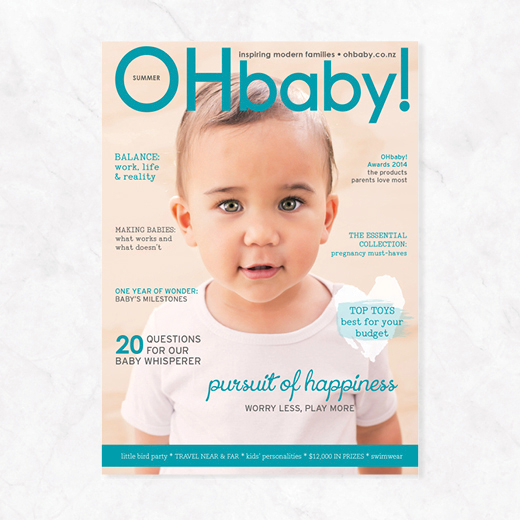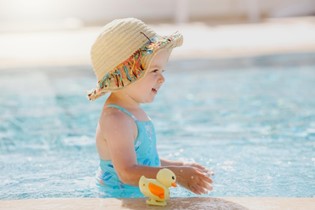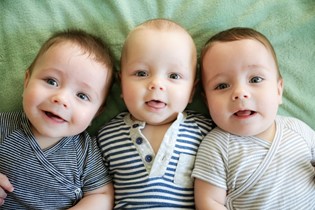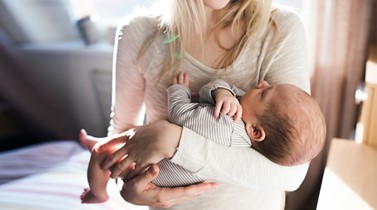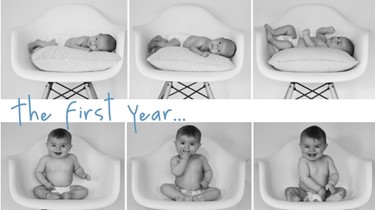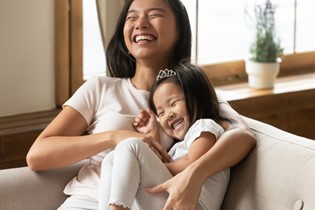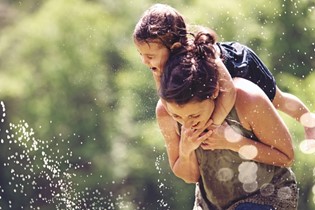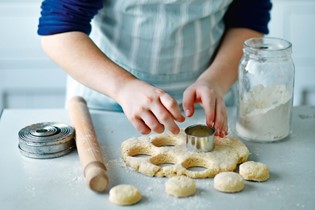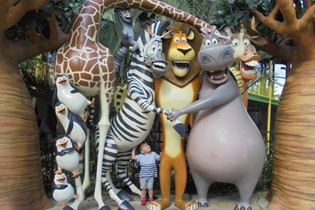Which personality traits does your baby show?
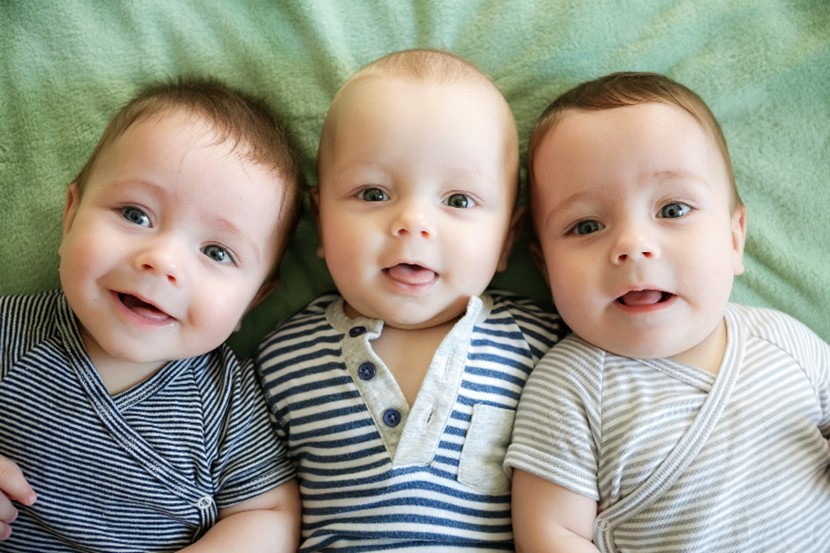
The key to a harmonious home life is recognising individual personalities and parenting accordingly. Allison Mooney looks at four common traits in babies and pre-schoolers.
Watch children playing and it takes only minutes to see their individual personalities start to shine through. There will be the sensitive child who stops to soothe his playmate after a scraped knee. Another quiet child may be ignoring the games around her and concentrating on a block tower, working on getting it ‘right’. Everyone will notice the ‘show pony’ who can’t stop horsing around. And the other standout-from-the-crowd kid will be obvious, she’s naturally taken charge and has her buddies organised into role-play characters before they even realise they’re playing.
Sometimes we’re shocked as parents to find out how different our children are, from us and from each other. Human beings come pre-packaged with a particular frame of reference that heavily influences our behaviour, reactions, emotional needs and outlook on life. These personality traits are found within our genes. There are no guarantees as to what type of personality babies are born with, rather it will be their own version of a family inheritance passed down through the complexities of DNA.
As I discussed in my last article 'Are you happily incompatible?' (in OHbaby! Magazine issue 27), Hippocrates (the ancient Greek doctor) came up with the theory that humans have four basic personality temperaments. Most people demonstrate characteristics that are a blend of more than one, but we all have a primary driver, or default mode.
There are many personality profile tools and assessments around. In this article I am discussing the four-personality type model. The four Ps below are terms I have coined to describe Hippocrates’ original four types. Remember, your children will most likely be a blend – this is what makes our kids unique. By understanding which personality type your child is you will better meet their emotional needs.
The following are clues as to which type your baby may be:
THE PLAYFUL BABY
This infant is bright, wide-eyed and curious. Lots of gurgles and coos and they prefer company. They are happy to perform and respond to affirmation and an audience.
the flip side (strengths out of balance): These babies know they are cute and can demand attention. Loudly.
THE POWERFUL BABY
These explorer babies are adventurous from the word go. They are energetic and outgoing. Leadership skills may be asserted from a very early age.
the flip side: They are strong-willed, demanding and at times precocious. They also seem to need less sleep and can be known to throw things!
THE PRECISE BABY
This infant is serious and quiet. They love routines and can really fuss if the schedule is changed.
the flip side: Easily upset and can be quite clingy.
THE PEACEFUL BABY
This personality type probably makes for the ‘easiest’ infants. They are adaptable, happy and seldom demanding.
the flip side: Often shy and indifferent.
You can really see these personalities at play with older children, especially in a group setting like kindergarten or even among siblings in day-to-day family life. You may recognise your child in the following hypothetical situations:
THE PLAYFUL CHILD
Will be daring and eager, cheerful and chatting a lot. Being around people energises them. They especially love to entertain a crowd. They love stories and are very imaginative. They are impulsive and easily distracted and will be forgetful on a daily basis.
needs: Lots of attention, affection and approval. Also some extra help to learn responsibility to go alongside their fun-loving lifestyle.
THE POWERFUL CHILD
Daring and moves quickly. They can think on their feet. You can rely on them to have a go at new activities. They are happy to work on their own (self-sufficient) but they can be quite testing and manipulative to get their own way. Powerful children will often assume leadership positions. They’re determined, not afraid to argue or throw a tantrum.
needs: The ability to choose and make decisions. Include them in discussions around the family rules and what the consequences should be for any misdemeanors. They also need to hear credit and appreciation for their efforts.
THE PRECISE CHILD
A thinker who is sensitive, intense and persistent. They have vivid imaginations and are naturally talented. Precise children need to get things right and can get frustrated if they can’t achieve perfection. They are good organisers and like order and routine. There may be some whining when things aren’t going according to their program. They can also be self-conscious and prone to moodiness, but as introverts they are probably just in need of some time by themselves to process things.
needs: Routine and structure, sensitivity and space. Encouragement to set realistic goals (avoiding perfectionism) and praise for their character not just their abilities.
THE PEACEFUL CHILD
Loves to watch others doing things. They are easily amused and agreeable. Fiercely loyal and natural peacemakers. They are very good listeners, deeply empathetic and dislike conflict. They can be quietly stubborn and tend to take the easy way and love watching television and being entertained.
needs: Respect and harmony. Gentle reminders to be assertive where appropriate and not to take on too much of other people’s problems.
Identifying personalities is much bigger than simply categorising, or heaven forbid, putting our children in boxes. We are moulded by our birth order, childhood experiences, belief system and culture. However, having insight into personality differences is another handy resource to have in our parenting tool kit.
MEANINGFUL DISCIPLINE
We know the punishment should suit the crime, but it should also suit the personality. The following may be effective in your family:
• Playful children love company therefore withdrawing them from social activities would be a powerful consequence.
• Powerful children need to choose so try allowing them a choice when it comes to discipline. “We can deal with this one of two ways – you can go to bed an hour earlier or you can miss your play-date with Jimmy.”
• Precise children love being alone therefore time out is not necessarily seen as a punishment. Give them time to think through what they have done, and then have a conversation around the causes and effects of their negative behaviour.
• Peaceful children are procrastinators. They are slower than most and may come across as dreamers. They need to experience real-life consequences for not heeding your instructions. Not putting their shoes on may mean not getting an ice-cream. They forgot their togs? Then, sorry, no swimming today.
| ‘The People Interpretor’ Allison Mooney is an award-winning professional speaker and author of the best-selling book Pressing the Right Buttons. She also recommends the The Treasure Tree, available from theparentingplace.com, as a great picture book to help kids understand their personality. Visit Allison at allisonmooney.co.nz. |

AS FEATURED IN ISSUE 28 OF OHbaby! MAGAZINE. CHECK OUT OTHER ARTICLES IN THIS ISSUE BELOW
